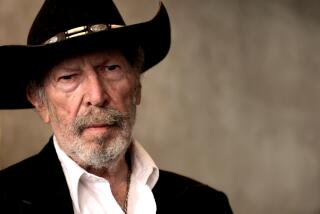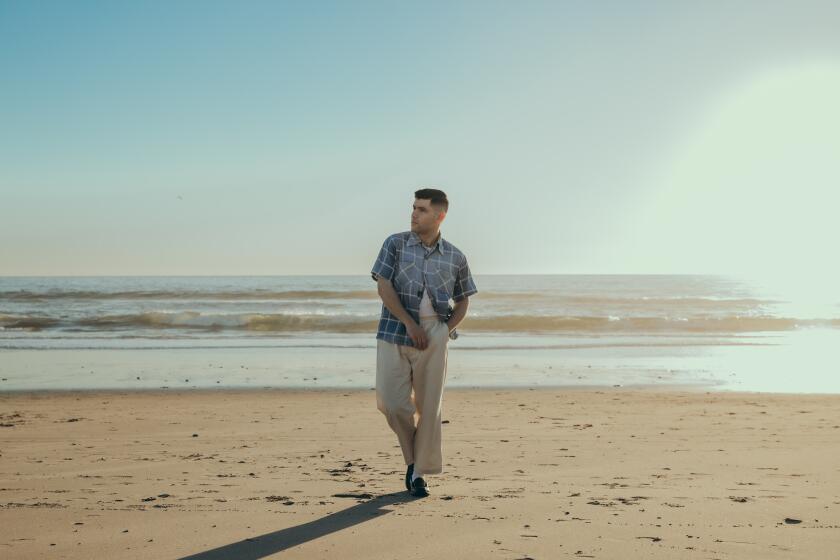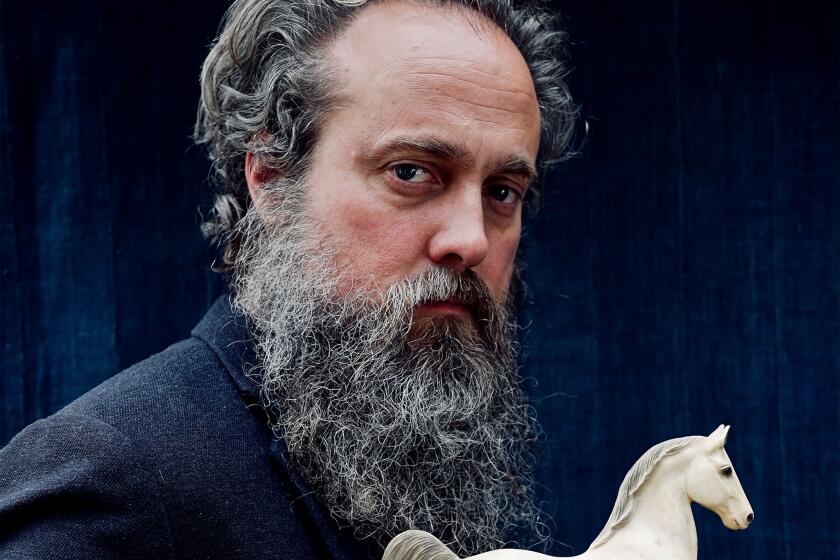Sessions of the Universal Congress Of: Unifying Styles
Stage-diving and slam-dancing to songs by jazz innovator Ornette Coleman?
That’s what the Los Angeles quartet Universal Congress Of encountered at its recent date in Muskegon, Mich.
“We played a concert there for this all-ages crowd that was pretty much skinheads,” said guitarist Joe Baiza over lunch in a Manhattan coffee shop during the East Coast leg of the group’s tour.
“It was Muskegon punk-rock youth and we thought, ‘Man, how are we gonna go over with these kids? What are they going to do--leave or yell at us?’ But they had a great time.”
The rowdy audience wasn’t the only type of crowd the group encountered on tour--it also shared a bill here with jazz saxophonist Odean Pope last month, and tonight it figures to face its usual hometown mix of arty types and hard-core kids when it headlines Raji’s in Hollywood. That wide range is fine with Universal Congress Of, which chose its unwieldy name to reflect the open-ended nature of its music.
The group’s sets combine originals with pieces written by such jazz artists as Coleman, Pope, James Blood Ulmer and Ronald Shannon Jackson. But UCO also mixes in funk hits by War and the Meters, Chicago blues classics by Otis Rush and Little Walter, and even a version of “Louie, Louie.”
The blend of freewheeling improvisation with funky dance grooves is daring, and the band members cite a bluesy spirit as the unifying element.
“It’s music I would like to hear from somebody,” Baiza explained. “In a way, I do music so I can hear it. . . . It’s soul music and I’m hoping it sounds coherent because it has this common thread to me.”
Added bassist Ralph Gorodetsky: “It was a real concern to me--not to be labeled eclectic, a blues band that’s going to freak people out with a little free jazz now. It has to do with feel more than format--those styles are all tied together, and hopefully that comes across.”
The initial problem facing Baiza, who played on the Los Angeles club circuit with the band Saccharine Trust for several years, wasn’t finding the common link in the material. It was connecting with like-minded musicians in an underground rock scene that never prized improvisation or contemporary jazz.
“I just didn’t know if it was going to be possible,” said Baiza. “After I quit Saccharine Trust, I thought I knew what I wanted to do--improvisation with a real edge to it along with some funky and bluesy stuff--but I had to find the right people to do it.”
It took a little while but Baiza found them close to home. Saxophonist Steve Moss had played in later editions of Saccharine Trust and drummer Jason Kahn was living down the hall from Baiza after the latter moved to Los Angeles in 1983. Gorodetsky, who had played with Moss in the Dissidents, rounded out the lineup two years ago. The group has recorded three albums for the Torrance-based independent SST Records.
The current band, both on record and in performance, steers clear of the supersonic scale runs and static grooves that often plague musicians looking to combine rock and jazz elements.
“You need to develop the technical side, but I listen to music to hear that thing that makes you want to play it again,” Gorodetsky said. “Certainly the people I like have chops, but those ‘chops for chops sake’ dudes can blaze away all day and, for me, two notes of Albert Collins will put them to bed.”
While the group may cherish the music of the jazz artists, it’s not averse to mixing irreverence with admiration. The design of the current “This Is Mecolodics” album copies Ornette Coleman’s “This Is Our Music” album cover of 30 years ago. The liner notes also spoof the serious, statement-of-musical-intent tone of the original.
With a foothold established on the American alternative rock circuit and a projected September tour of Europe, Universal Congress Of seems poised to attract a wider audience. But the musicians still view the group as a long-term labor of love more likely to bring musical satisfaction than commercial success.
“It’s funny when people scream ‘Play Ornette,’ ” Gorodetsky said. “Even after what I feel is a dismal show, somebody always comes up and says, ‘Wow! I haven’t heard anything like that.’ Which is good--it makes you think there’s actually an audience for this kind of thing out there.”
More to Read
The biggest entertainment stories
Get our big stories about Hollywood, film, television, music, arts, culture and more right in your inbox as soon as they publish.
You may occasionally receive promotional content from the Los Angeles Times.






